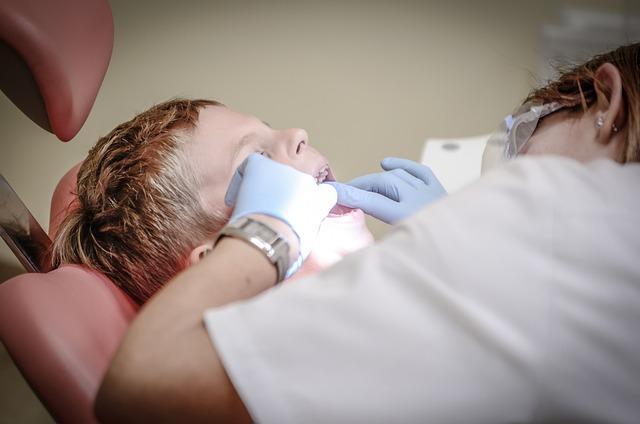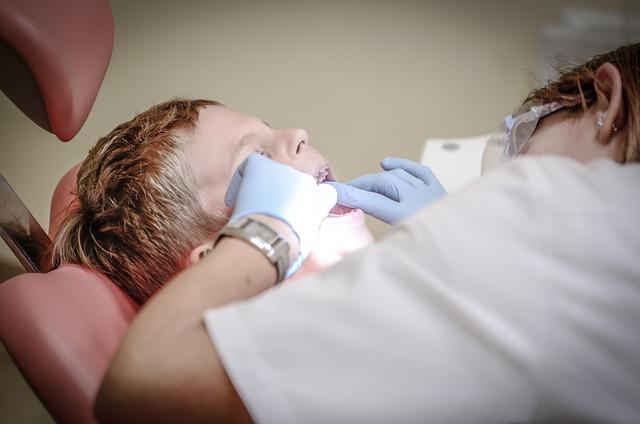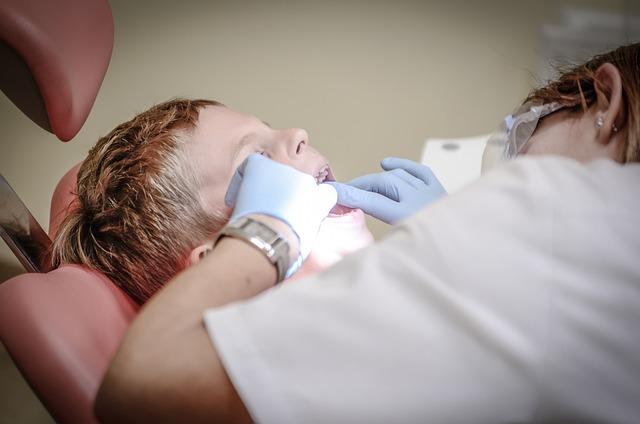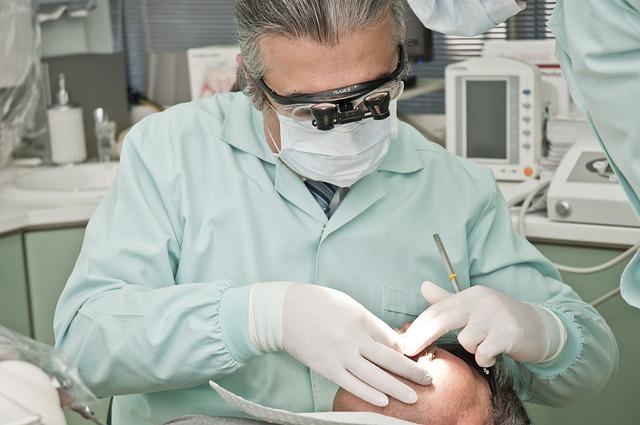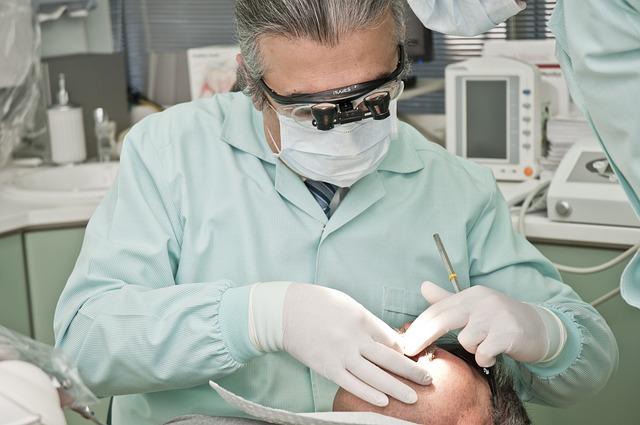Should I Use Saltwater After Wisdom Tooth Extraction? Expert Advice
Are you considering using saltwater after wisdom tooth extraction but unsure if it’s the right choice for you? Look no further! In this informative article, we will provide you with expert advice on whether or not to utilize saltwater for post-operative care. Equipped with accurate information and a neutral perspective, you can confidently make an informed decision about your oral health. Let’s delve into the world of saltwater after wisdom tooth extraction and uncover the facts you need to know.
1. Understanding the Role of Saltwater Rinse: A Critical Step for Post-Wisdom Tooth Extraction Care
After undergoing wisdom tooth extraction, it is crucial to properly care for the surgical site to promote healing and prevent infections. One key step in post-extraction care is the use of a saltwater rinse. This simple yet effective technique can greatly aid in the recovery process.
Here are some important things to know about the role of saltwater rinse:
- Promotes healing: Saltwater rinses help to cleanse the extraction site, removing debris, bacteria, and food particles that may be present. This promotes faster healing by reducing the risk of infection and keeping the area clean.
- Reduces inflammation: Saltwater has natural anti-inflammatory properties that can help reduce swelling and discomfort around the surgical site. This can provide relief and contribute to a more comfortable recovery.
- Prevents infection: Salt is known for its antibacterial properties, making a saltwater rinse highly effective in preventing infections. Rinsing with a saltwater solution can help kill bacteria and keep the extraction site free from harmful microorganisms.
To prepare a saltwater rinse, dissolve half a teaspoon of salt in a cup of warm water. Gently swish the solution in your mouth for about 30 seconds, making sure to reach the extraction site. Repeat this process several times a day, especially after meals, to maintain proper oral hygiene and promote optimal healing.

2. The Pros and Cons of Saltwater Rinse: Expert Insights on its Effectiveness for Healing After Wisdom Tooth Extraction
When it comes to healing after wisdom tooth extraction, saltwater rinse is often recommended by experts as an effective method. However, like any medical treatment, it has its pros and cons.
Pros of Saltwater Rinse:
- Reduces swelling and pain: Saltwater rinse can help reduce swelling and pain in the area of extraction, providing relief and promoting faster healing.
- Prevents infection: The saltwater solution acts as a natural disinfectant, helping to prevent infection in the extraction site.
- Easy to prepare and use: Saltwater rinse can be easily made at home by dissolving salt in warm water. It is a simple and cost-effective method of promoting healing.
Cons of Saltwater Rinse:
- Taste and discomfort: Some people may find the taste of the saltwater rinse unpleasant, and it may cause temporary discomfort or a stinging sensation.
- Requires regular usage: To see the desired results, it is important to use the saltwater rinse consistently as instructed by the dentist or oral surgeon.
- May not be suitable for everyone: Individuals with certain medical conditions or allergies may need to avoid saltwater rinse or consult their healthcare provider before using it.
Ultimately, the decision to use saltwater rinse for healing after wisdom tooth extraction should be made in consultation with a dental professional, taking into account individual circumstances and preferences.

3. Expert Advice on Using Saltwater Rinse After Wisdom Tooth Extraction: What You Need to Know
After having your wisdom tooth extracted, it’s crucial to follow proper aftercare instructions to promote healing and prevent complications. One highly recommended practice is using a saltwater rinse, which can provide numerous benefits for your oral health during the recovery process. Here’s what you need to know:
- Reduces swelling and inflammation: Saltwater has natural anti-inflammatory properties that can help reduce swelling and inflammation in the affected area. Gently swishing a warm saltwater solution in your mouth can soothe the tissues and alleviate discomfort.
- Keeps the extraction site clean: Saltwater rinse acts as a mild antiseptic, helping to keep the extraction site clean and free from bacteria. This can minimize the risk of infection and promote faster healing.
- Promotes blood circulation: Rinsing with saltwater can improve blood circulation around the extraction site, which aids in the delivery of essential nutrients and oxygen to the area. This can expedite the healing process and help form a protective blood clot.
- How to prepare a saltwater rinse: Dissolve half a teaspoon of salt in eight ounces of warm water. Stir until the salt is completely dissolved. Be sure to use warm water, as hot water can cause discomfort and delay healing.
- How to use a saltwater rinse: Gently swish the saltwater solution in your mouth for about 30 seconds and then spit it out. Repeat this process two to three times a day, especially after meals, for optimal results.
Remember, while saltwater rinse can be highly beneficial, it’s crucial to consult with your dentist or oral surgeon before incorporating it into your post-extraction routine. They can provide personalized advice based on your specific case and ensure you’re on the right track to a speedy recovery.

4. Exploring the Benefits of Saltwater Rinse for Post-Extraction Healing: Expert Opinions Unveiled
When it comes to post-extraction healing, many patients wonder about the most effective methods to promote a speedy and complication-free recovery. One method that has gained significant attention is the use of saltwater rinse. We reached out to experts in the field to shed light on the benefits of this practice.
Here are some expert opinions on the benefits of saltwater rinse for post-extraction healing:
- Promotes healing: Saltwater rinse helps to keep the extraction site clean and free from bacteria, reducing the risk of infection. The saltwater solution creates an environment that promotes healing and prevents the formation of harmful bacteria.
- Reduces inflammation: The gentle rinsing action of saltwater can help reduce inflammation and swelling around the extraction site. This can alleviate discomfort and promote a more comfortable healing process.
- Alleviates discomfort: Saltwater rinse can provide a soothing effect on the gums and surrounding tissues, providing temporary relief from any discomfort or pain experienced after an extraction.
- Easy and cost-effective: Saltwater rinse is a simple and affordable method that can be easily incorporated into a post-extraction care routine. It requires minimal ingredients and can be done at home without the need for specialized products.
While saltwater rinse can offer numerous benefits for post-extraction healing, it is important to consult with your dentist or oral surgeon to determine if this method is suitable for your specific situation. They can provide personalized advice and guidance to ensure the best possible outcome for your recovery.

5. The Science Behind Saltwater Rinse: How it Promotes Healing After Wisdom Tooth Extraction
When it comes to promoting healing after wisdom tooth extraction, saltwater rinse is a scientifically proven method that offers numerous benefits. Here’s a closer look at the science behind this simple yet effective solution:
Saltwater Rinse Reduces Inflammation:
One of the primary reasons why saltwater rinse is recommended after wisdom tooth extraction is its ability to reduce inflammation. The saline solution helps to draw out excess fluid from the tissues surrounding the extraction site, which in turn reduces swelling and discomfort. This can significantly speed up the healing process and provide relief.
Saltwater Rinse Prevents Infection:
Another key benefit of saltwater rinse is its ability to prevent infection. Salt has natural antimicrobial properties that can help kill bacteria and prevent the growth of harmful microorganisms. By rinsing with a saltwater solution, you create an environment that is less conducive to bacterial growth, reducing the risk of post-extraction infections.
Saltwater Rinse Promotes Blood Circulation:
Improved blood circulation is crucial for proper healing, and saltwater rinse can help stimulate blood flow to the extraction site. The rinsing action helps dilate blood vessels, allowing oxygen and essential nutrients to reach the area more efficiently. This promotes faster tissue regeneration and accelerates the healing process.
By incorporating saltwater rinse into your post-wisdom tooth extraction routine, you can harness the power of science to promote healing, reduce inflammation, prevent infection, and improve blood circulation. It’s a simple yet effective technique that can make a significant difference in your recovery.

6. Are there Any Drawbacks to Using Saltwater Rinse After Wisdom Tooth Extraction? Expert Analysis
One of the most frequently recommended practices after wisdom tooth extraction is the use of saltwater rinse. While it is generally safe and effective, there are a few drawbacks to consider. It is important to be aware of these potential issues to make an informed decision about incorporating this practice into your post-extraction care routine.
1. Irritation and discomfort: Saltwater rinse can sometimes cause irritation, especially if the solution is too concentrated or used too frequently. This can lead to discomfort and prolonged healing time. It is crucial to follow the recommended guidelines and consult with your dentist or oral surgeon to ensure the right concentration and frequency for your unique situation.
2. Taste and smell: Saltwater rinse has a distinct taste and smell that might not be pleasant for everyone. Some individuals may find it difficult to tolerate or might even experience nausea or an unpleasant aftertaste. If you have a sensitive palate or find the taste overwhelming, alternative rinses or mouthwashes may be a better option for you.
3. Limited effectiveness against infection: While saltwater rinse can help reduce inflammation and promote healing, it may not be sufficient in preventing or treating infections. If you experience symptoms such as severe pain, swelling, or pus discharge, it is essential to seek professional medical attention as these could be signs of an infection that may require antibiotics or other treatments.
In conclusion, while saltwater rinse is generally a useful post-extraction practice, it is important to be aware of its drawbacks. Irritation and discomfort, taste and smell, as well as limited effectiveness against infection, are some factors to consider. Always consult with your dental professional for personalized advice and recommendations based on your specific situation.
7. Saltwater Rinse vs. Traditional Mouthwash: Which is More Effective for Post-Extraction Care? Expert Recommendations
When it comes to post-extraction care, there is often a debate about which is more effective: saltwater rinse or traditional mouthwash. Both options have their merits, but it ultimately depends on the individual’s needs and preferences.
Experts generally recommend saltwater rinse as a natural and cost-effective alternative to traditional mouthwash. Here are a few reasons why:
- Gentle Healing: Saltwater rinse helps soothe the gums and promotes faster healing after tooth extraction. Its gentle nature reduces the risk of irritation or discomfort.
- Antibacterial Properties: Saltwater rinse has natural antibacterial properties that can help prevent infection and reduce inflammation in the mouth.
- Reduced Chemical Exposure: Traditional mouthwash often contains alcohol and other chemicals that may cause dry mouth or irritation. Saltwater rinse, on the other hand, is a simple mixture of salt and water, minimizing exposure to potentially harmful substances.
While saltwater rinse is generally recommended, it’s important to consult with your dentist or oral surgeon for personalized advice. They can assess your specific situation and provide guidance on the most suitable option for your post-extraction care.
8. Dos and Don’ts of Saltwater Rinse After Wisdom Tooth Extraction: Expert Guidelines for Optimal Healing
When it comes to the recovery process after wisdom tooth extraction, following the proper guidelines for saltwater rinses is crucial for optimal healing. To ensure you are taking the right steps, we have compiled a list of dos and don’ts recommended by experts in the field:
DO:
- Prepare the saltwater solution by dissolving half a teaspoon of salt in eight ounces of warm water.
- Gently swish the saltwater in your mouth for about 30 seconds, making sure to reach all areas of your mouth.
- Repeat the saltwater rinse at least 2-3 times a day, especially after meals and before bed, for the first few days following the extraction.
- Be consistent with your rinsing routine for the duration of your healing process, as it helps reduce swelling, prevent infection, and promote faster healing.
- Use a soft-bristle toothbrush to gently clean your teeth and gums after each meal, being careful to avoid the extracted area.
DON’T:
- Do not rinse your mouth vigorously or spit forcefully during the first 24 hours after the extraction, as this can dislodge the blood clot and hinder the healing process.
- Avoid using mouthwash or commercial rinses during the first few days, as they may contain harsh chemicals that can irritate the extraction site.
- Avoid drinking through a straw or smoking, as the suction created can also dislodge the blood clot.
- Avoid eating hard, chewy, or sticky foods that can get stuck in the extraction site and cause irritation or infection.
- Do not skip your prescribed pain medication or antibiotics as directed by your dentist or oral surgeon.
By following these expert guidelines for saltwater rinses, you can ensure a smooth recovery process and promote optimal healing after your wisdom tooth extraction.
9. A Step-by-Step Guide to Preparing and Using Saltwater Rinse for Post-Extraction Care: Expert Tips
Preparing and using a saltwater rinse is a crucial step in post-extraction care. This step-by-step guide will walk you through the process, ensuring that you have all the necessary information to promote healing and prevent infection. Follow these expert tips for a successful saltwater rinse:
1. Gather the ingredients: Start by preparing a saltwater solution. Mix half a teaspoon of salt into eight ounces of warm water. Make sure to use non-iodized salt, as iodized salt can irritate the wound.
2. Rinse gently: Take a small sip of the saltwater solution and swish it around your mouth for 30 seconds. Be sure to cover the entire area of the extraction site. Spit out the solution, but do not swallow it.
3. Repeat regularly: Perform the saltwater rinse at least two to three times a day for the first few days after the extraction. This will help keep the area clean and aid in reducing inflammation.
4. Avoid vigorous rinsing: While it is important to rinse, avoid vigorous rinsing or spitting forcefully, as this can dislodge the blood clot and delay the healing process.
By following these step-by-step instructions, you can ensure proper post-extraction care using a saltwater rinse. Remember to consult your dentist for any specific instructions or concerns.
10. Expert Perspectives on the Role of Saltwater Rinse in Managing Pain and Reducing Infections After Wisdom Tooth Extraction
Experts have long debated the effectiveness of saltwater rinses in managing pain and reducing infections after wisdom tooth extraction. However, a growing body of research suggests that saltwater rinses can play a crucial role in post-operative care. Here are some expert perspectives on the benefits of incorporating this simple yet effective practice into your recovery routine:
1. Reduces inflammation: Saltwater rinses work by creating a hypertonic environment that draws out excess fluid from the tissues, reducing swelling and inflammation. This can help alleviate pain and promote faster healing.
2. Cleanses the wound: Rinsing with a saltwater solution helps cleanse the surgical site, washing away food particles, debris, and bacteria that could potentially lead to infections. It acts as a natural antiseptic, killing harmful microorganisms and reducing the risk of post-operative complications.
3. Soothes discomfort: The warm saltwater solution has a soothing effect on the gums and oral tissues, providing relief from soreness and discomfort after wisdom tooth extraction. It can also help to minimize the risk of dry socket, a painful condition that occurs when the blood clot at the surgical site becomes dislodged.
While saltwater rinses are generally considered safe and beneficial, it is important to follow your dentist or oral surgeon’s instructions on how frequently and for how long to use them. It’s also crucial to remember that saltwater rinses should not replace prescribed medications or other post-operative care measures. Always consult with your dental professional for personalized advice and guidance.
Frequently Asked Questions
Q: Should I use saltwater after wisdom tooth extraction?
A: Yes, using saltwater is highly recommended after wisdom tooth extraction.
Q: Why is saltwater beneficial for post-extraction care?
A: Saltwater helps to keep the extraction site clean, reduces swelling, and aids in the healing process.
Q: How do I prepare saltwater for rinsing?
A: Mix half a teaspoon of salt with eight ounces of warm water. Stir until the salt is completely dissolved.
Q: How often should I rinse with saltwater?
A: Rinse with saltwater at least 2-3 times a day, particularly after meals, for the first few days following the extraction.
Q: How long should I continue using saltwater?
A: It is recommended to continue rinsing with saltwater for about a week or until your dentist advises otherwise.
Q: Are there any precautions I should take while using saltwater?
A: Avoid aggressive rinsing or gargling, as it may dislodge the blood clot and impede the healing process. Be gentle and swish the saltwater around the mouth without creating excessive force.
Q: Can I use regular table salt for saltwater rinses?
A: While regular table salt can be used, it is better to opt for non-iodized salt, as it is less likely to cause irritation.
Q: Is there an alternative to saltwater for post-extraction care?
A: Saltwater is the most commonly recommended solution, but your dentist may suggest alternative options such as a prescribed mouthwash or saline solution.
Q: Will saltwater help with pain relief after wisdom tooth extraction?
A: Saltwater rinses primarily aid in maintaining oral hygiene and promoting healing. If you are experiencing pain, your dentist may prescribe pain medication or suggest over-the-counter pain relievers.
Q: Can I replace saltwater rinses with mouthwash?
A: While mouthwash can be used as an alternative, it is important to consult your dentist before substituting it for saltwater rinses, as certain mouthwashes may contain ingredients that could hinder the healing process.
Q: Is it normal to experience some discomfort while using saltwater after extraction?
A: It is common to experience slight discomfort or a mild stinging sensation while rinsing with saltwater, especially in the first few days following the extraction. However, if the discomfort persists or worsens, it is advisable to consult your dentist.
The Way Forward
In conclusion, when it comes to using saltwater after wisdom tooth extraction, expert advice suggests that it can be a beneficial practice. Saltwater rinses can help reduce swelling, alleviate discomfort, and promote a healthy healing process. However, it is essential to remember a few key takeaways. Firstly, consult with your dentist or oral surgeon before incorporating saltwater rinses into your post-extraction routine. They will assess your specific case and provide personalized guidance. Secondly, ensure that you use the correct salt-to-water ratio to avoid any adverse effects. Lastly, gentle rinsing is crucial to avoid dislodging blood clots or causing further irritation. By following these expert recommendations, you can effectively utilize saltwater to aid in your wisdom tooth extraction recovery.
